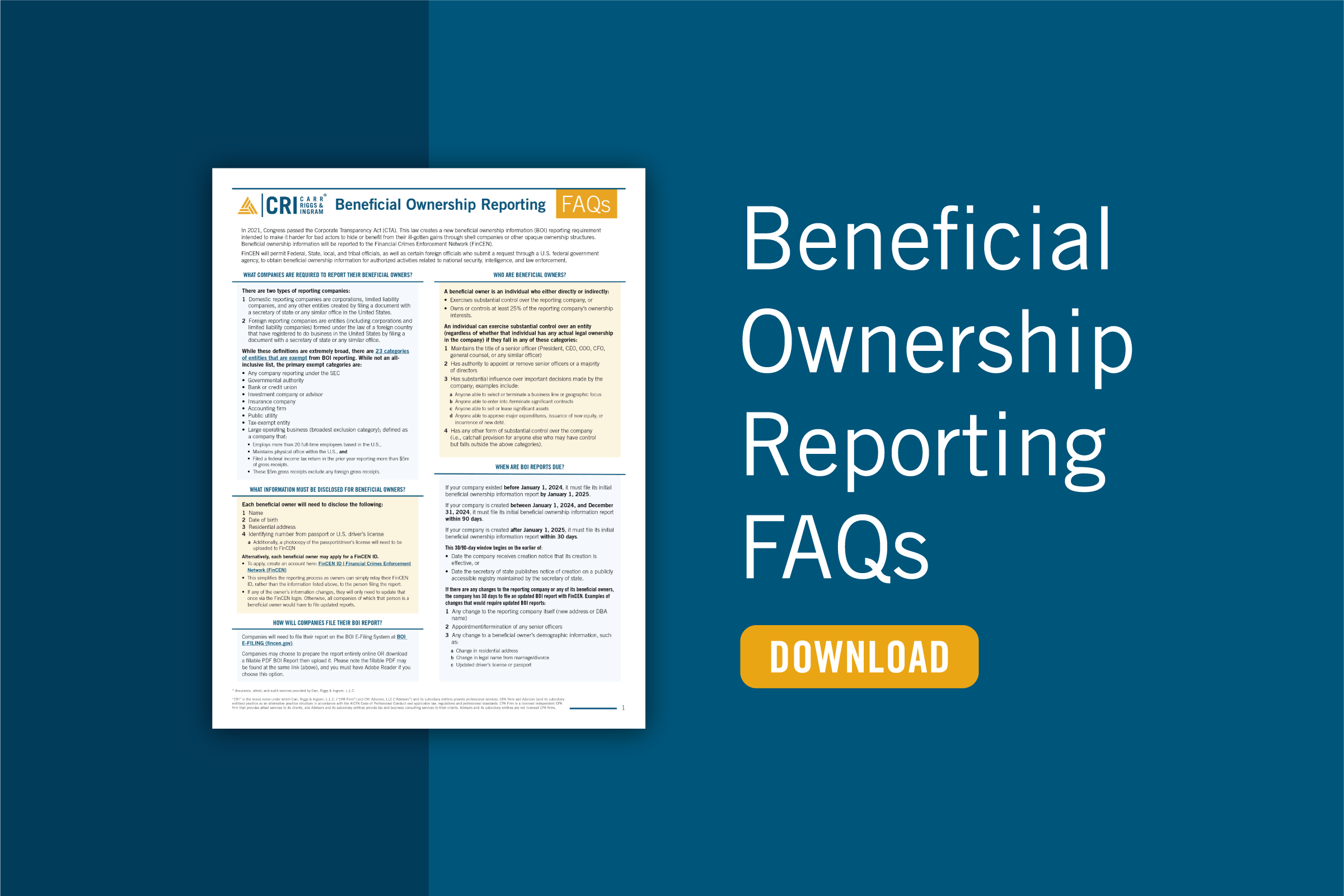Small Business Compliance: Are You Sticking to the Law?
- Contributor
- Esmeralda Yniguez
Aug 5, 2024
Regulations and red tape can sometimes take the joy out of running a business, regardless of its size. Like large corporations, small businesses face the risk of fines, penalties, and adverse tax consequences if they fail to adhere to required regulations. To help you steer clear of these pitfalls, we’ve compiled essential tips and strategies for maintaining compliance in four major areas of small business management.
Good small business compliance starts with developing a process that includes closely monitoring federal and state rules and regulations. Evaluate the current status of your small business compliance with questions such as these below.
- Is the human resources team up-to-date on changes in employment law?
- Is the accounting team monitoring sales and use tax issues?
- Does the company have a compliance officer or committee, or does the compliance buck ultimately stop with the owner?
- Are there internal controls in place that help ensure compliance is consistently met?
While certain industries are more heavily regulated than others, there are some general small business compliance issues that apply to businesses of any size. We’ve listed several of these issues below.
Employment Compliance
According to the Enforcement and Litigation Statistics | U.S. Equal Employment Opportunity Commission (eeoc.gov) , disability, racial and sexual discrimination are the most prevalent forms of workplace discrimination. The Pregnant Workers Fairness Act recently went into effect adding a couple hundred charges in just the first few months. Given that a 100-employee company can expect an employment practices claim at least once every three years, it behooves all companies to cling to the letter of the law.
Takeaway: Address the biggest causes of non-compliance head-on by 1) adopting written hiring practices that reduce the room for risky judgement from hiring decision makers and 2) providing employee discrimination training at least annually throughout the company. Maintain records of both training material and training attendance lists to serve as evidence that the training occurred. Clearly spell out policies in an employee handbook to have all employees sign an acknowledgement. Finally, plan for periodic updates of that acknowledgment by your employees.
Resources: The Small Business Administration (SBA) website offers tools, guides, and training materials that can help organizations comply with employment and labor laws.
Employee Benefit Plan Compliance
The DOL requires businesses to properly manage employee benefit plans. The DOL expects plan sponsors to properly apply plan provisions, conduct tests, file proper reporting, and provide employees with required notices and documents. In some cases, businesses may need to submit audited employee benefit plan financial statements when the number of employees in the plan reach a certain threshold.
Takeaway: Because of the compliance complexity, many companies utilize third parties to administer their benefit plans. However, even if a company outsources the duties of managing a plan, it still retains the ultimate fiduciary duty of executing the benefit plan in full compliance with the law. Monitor the number of your plan participants and reach out to your CRI representative for a 401(k) Audit*.
Resources: The DOL provides 401(k) Plans For Small Businesses | U.S. Department of Labor (dol.gov), a reference tool for basic reporting and disclosure requirements under the Employee Retirement Income Security Act (ERISA).
Tax Compliance
Tax compliance is easier said than done. Consider that there are over 11,000 state sales tax jurisdictions in the United States — and thousands of changes made by state legislatures each year. Complicating matters are Internet sales tax issues, as well as states increasingly subjecting new services and items to sales and use tax. Some states are even reversing exemptions that have traditionally been granted. States are typically aggressive in sales and use tax audits, so businesses of all sizes should watch out for areas of exposure.
Takeaway: Understanding sales tax nexus is one of the most important parts of tax compliance, yet many organizations lack this knowledge. A study by Thomson Reuters’ Sabrix Tax Services division found that 95% of companies surveyed underestimated their nexus footprint, and 85% of participating companies underestimated the number of states in which they needed to register by more than 50%.
Resources: The IRS’ Small Business and Self-Employed Tax Center provides online tools and educational products (including a desktop tax calendar tool) to help small business owners manage business taxes more efficiently. Also, find out how many different sales tax jurisdictions you may need to consider depending on where your business operates: Sales Tax Jurisdictions by State, 2020 | Tax Foundation.
Corporate Compliance
A company that is registered as a C-corporation or an S-corporation must act like a corporation in order to enjoy the protection of a corporation. A business’ so-called “corporate veil” can be pierced if it violates rules regarding items such as holding annual director and shareholder meetings, adopting and maintaining updated bylaws, issuing stock to shareholders, and recording all stock transfers.
Takeaway: Small business owners and management teams should keep – and maybe even be “glued” to – corporate minutes. The goal is to maintain accurate documentation of the board’s actions to substantiate their discussions and decisions.
Resources: Business owners should check with the secretary of state (the state in which the business is incorporated) for specific guidance, such as the requirements for filing an annual statement or paying a franchise tax.
CRI Can Help You Avoid a “Sticky” Business Compliance Situation
Make the time to learn about the compliance challenges your business faces. After all, red tape that is not properly handled can create sticky situations that may impact your bottom line. Contact CRI’s experienced governance for assistance with your business compliance issues, tax planning, and preparation services, employee benefit plan audits, and/or internal control consulting. With our expertise on your side, you can focus on what you do best—running your business.























































































































































































































































































































































































































































































